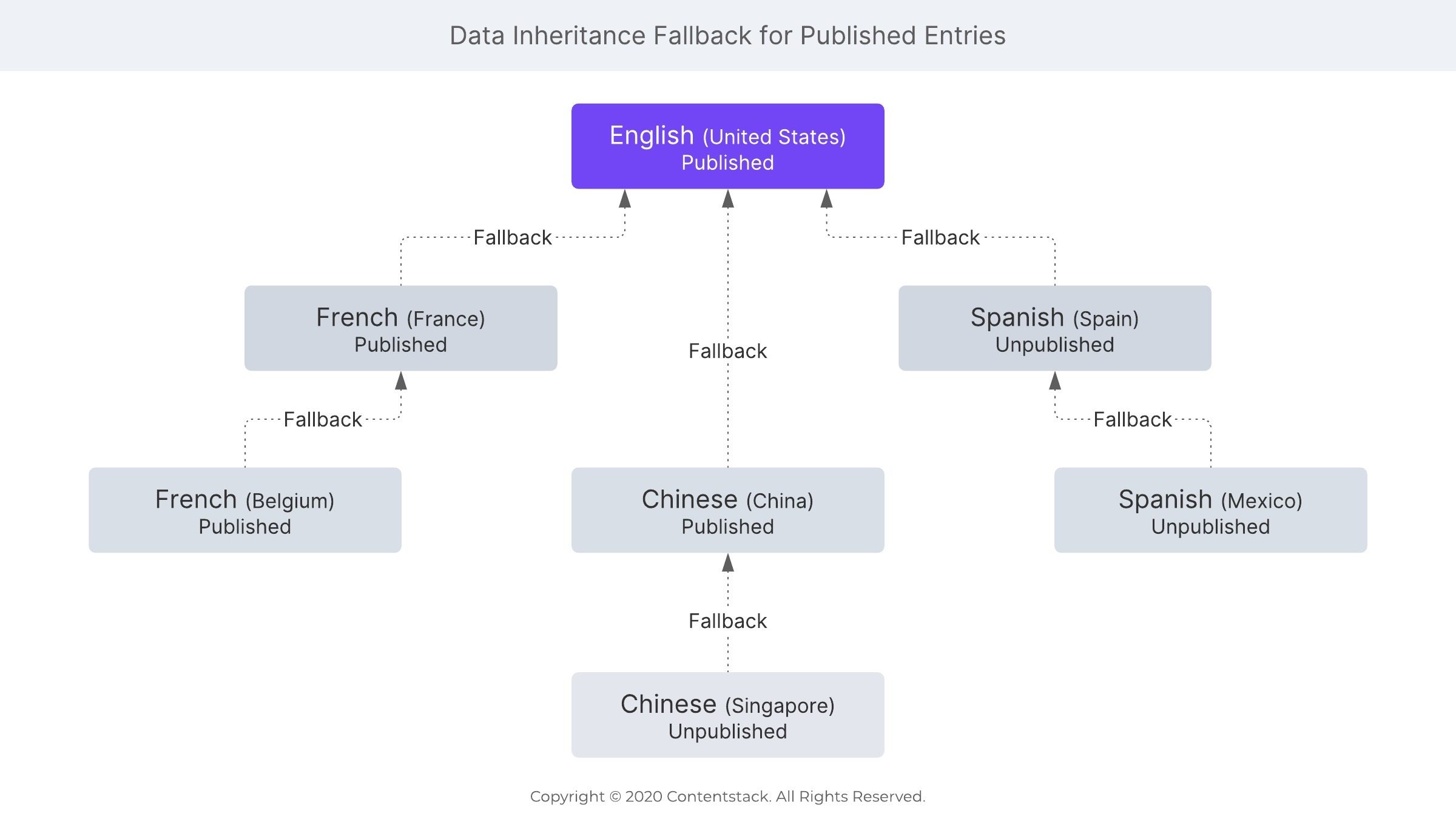Was this article helpful?
Thanks for your feedback
A fallback language is the parent language from which a given language inherits data from. Contentstack allows you to define a fallback language for every language you add to a stack.
Using a fallback language, you have control over the source content for a given language. You can then make changes to the fetched content and localize an entry in the given language. For a given language, if there is no data available in the fallback language, the entry will fetch data from the master language.
For example, you can set English (United States) as the fallback language for French (France), and French (France) as the fallback language for Spanish (Spain). In this case, when you try to create an entry in Spanish (Spain), it will first fetch the content of the entry created in French (France). If no data is available in French (France), it will fetch data from the master language.
Note: You cannot create a fallback-language chain deeper than one level for non-master languages. So, in the above example, you cannot set a fallback language (other than the master language) for Spanish (Spain).
When an entry is not published in a specific language, you can fetch content from its fallback language (only if it is published) in the same Content Delivery API request.
To automatically include the published fallback language content in your API response, pass the include_fallback:true parameter in the request. Learn more about retrieving fallback language content for published entries and assets.
The following diagram illustrates the data inheritance fallback logic between each of the languages in which the entries of a stack have been published.

As shown in the above diagram, English (United States) is the master language of the stack. The entries have not been published in the following languages:
If an entry is not published in Spanish (Mexico), then you can fetch the entry published in Spanish (Spain). However, if the entry is not published in (Spanish - Spain), then you can fetch content from the master language, i.e. English (United States).
To fetch published fallback language content via API, refer to the following API requests:
Was this article helpful?
Thanks for your feedback